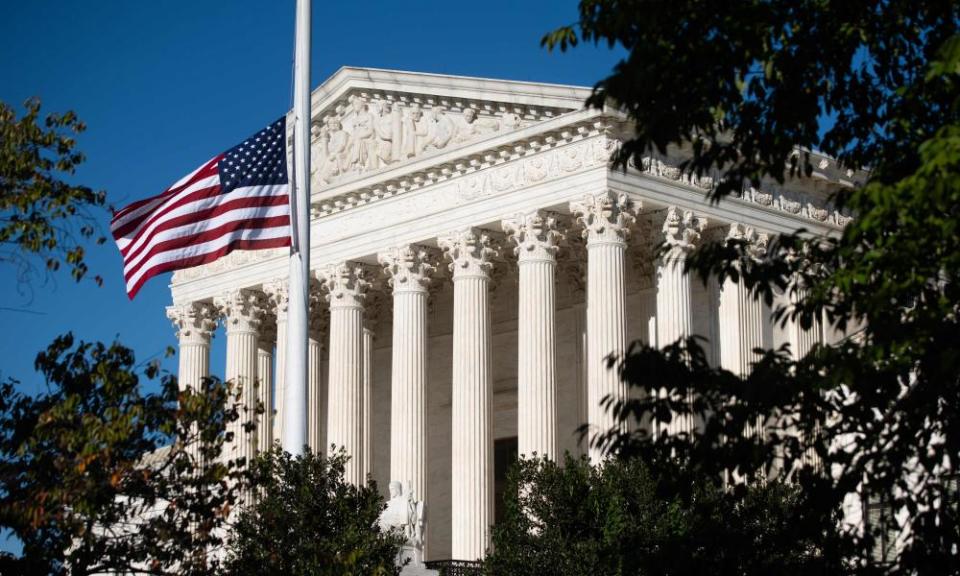The Guardian view on the US supreme court: RBG, persuasion and raw power

Ruth Bader Ginsburg won love and admiration not only as a champion of equality, but through the brilliance of her ability to persuade. The men seeking to undo her work, by forcing through the appointment of another conservative ideologue to the supreme court, know they cannot compel with an ethical vision. They have none, and rely on raw power.
Donald Trump and the Senate majority leader, Mitch McConnell, have already stacked the supreme and lower federal courts with an extraordinary number of appointees, thanks to Mr McConnell’s previous obstruction of Barack Obama’s nominees. Most egregiously, he refused to even grant Merrick Garland a hearing for the 2016 supreme court vacancy on the grounds that it was only eight months until the election. Backing an appointment less than a month and a half before this year’s, with voting having already begun, or in a lame duck period of the presidency should Mr Trump lose, is arrant hypocrisy on his part – and entirely predictable.
Supreme court nominations are a brutal business and the stakes have rarely been so high. In the day and a half after Justice Ginsburg’s death was announced, more than $100m flowed into Democratic causes and campaigns. A president who received almost 3 million votes fewer than his defeated rival is aided and abetted by a Republican senate majority that represents tens of millions of Americans fewer than the Democratic minority. A new conservative justice – the frontrunners are believed to be Amy Coney Barrett and Barbara Lagoa – would decisively harden the court’s ideological skew, creating a six-three rightwing majority. Views and values not supported by most American voters would dominate the executive, legislature and judiciary.
The reverberations would be felt throughout US society. Reproductive rights, already eroded, are the most obvious target. Joe Biden, pitching to win back voters from Mr Trump in November, and mindful of the pandemic’s effect on his rival’s popularity, has instead stressed the threat to healthcare: the court is due to hear a Republican-led case seeking to throw out the Affordable Care Act weeks after the election. It is also possible that the court could play a role in what looks set to be the most litigated election in history – as it did in Bush v Gore in 2000, settling the Florida recount dispute in the Republicans’ favour.
Two Republican senators have said the vacancy should not be filled before the election; should they hold to that, only two more would need to flip. But there is no sign of others putting country before party, despite Mr Biden’s appeal. He is positioning himself carefully: a reflection of his brand, as a man who can heal divides and do business across the aisle, but also of the fear that this is just the kind of issue to energise the Trump base, and turn off some who may be softening to Biden.
Democrats are not admitting defeat. But they are looking beyond election day, to the possibility of blocking the appointment – if Mr Biden wins and they take the Senate – or, for progressives in particular, to the nuclear option: enlarging or restructuring the supreme court (and, potentially, adding Puerto Rico and the District of Columbia as states, rebalancing the Senate).
This would, surely, further exacerbate divisions in a desperately fractured nation. But for Republicans, it would be the sound of chickens coming home to roost. Though Mr McConnell and his cronies are not swayed by the kind of moral suasion Justice Ginsburg embraced, they should remember that what they do now will be neither forgiven nor forgotten.

 Yahoo News
Yahoo News 